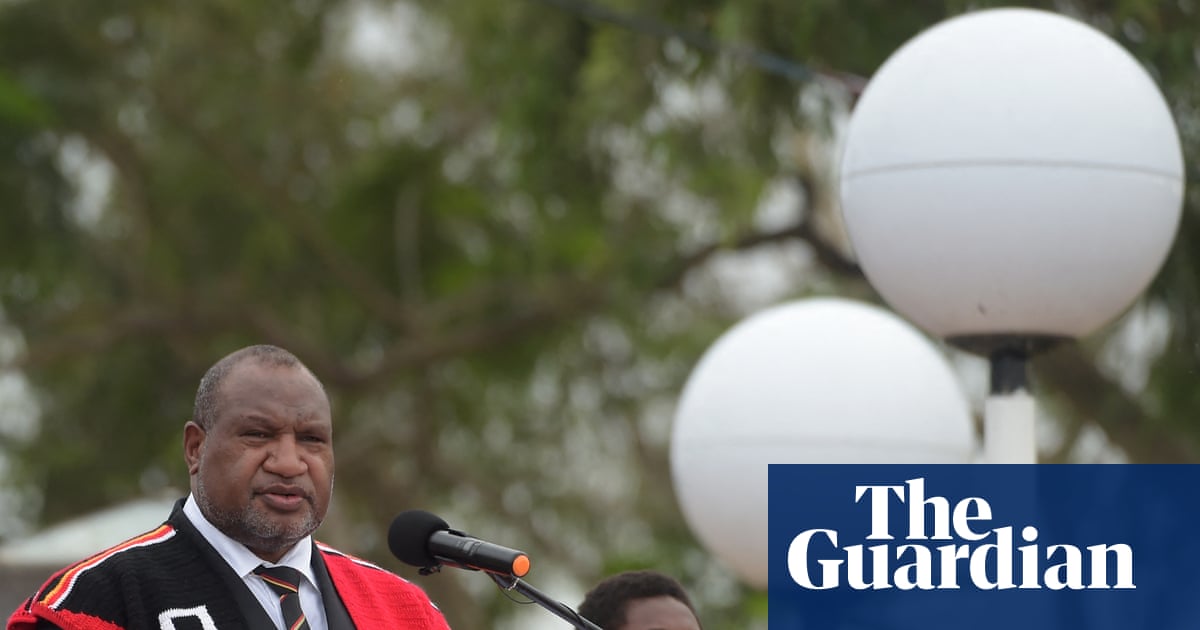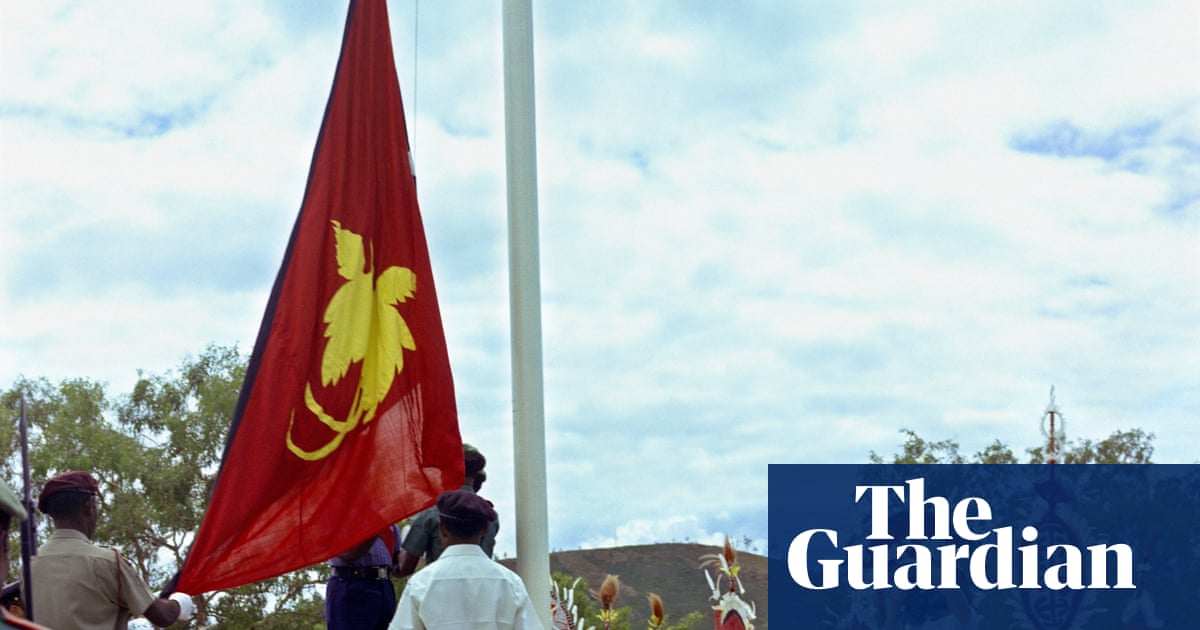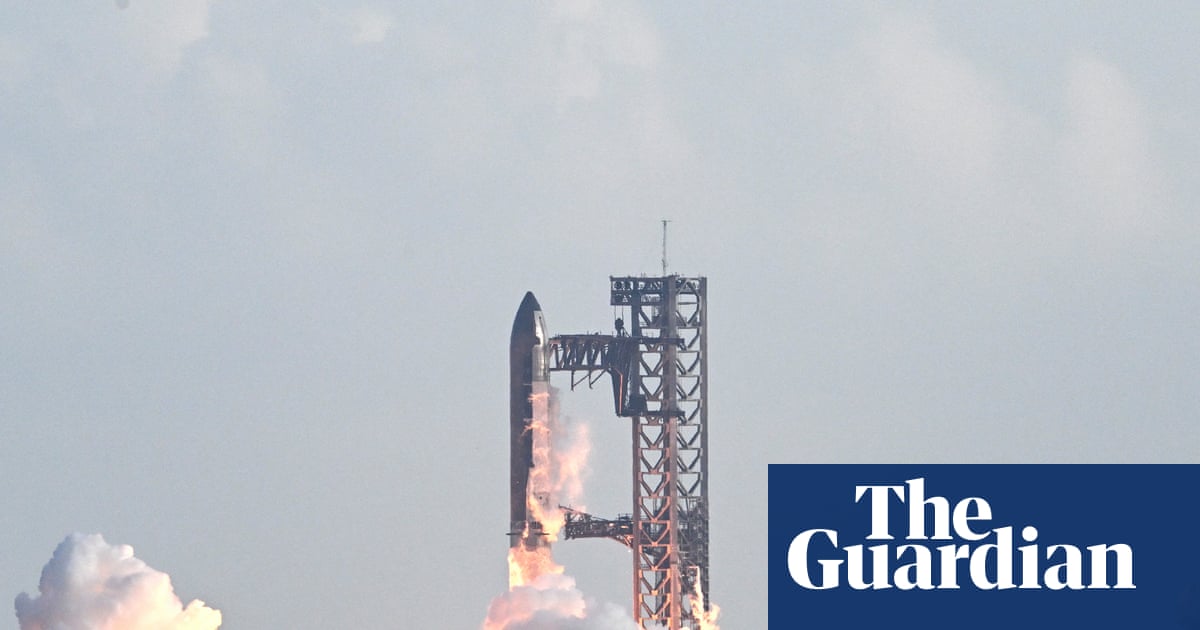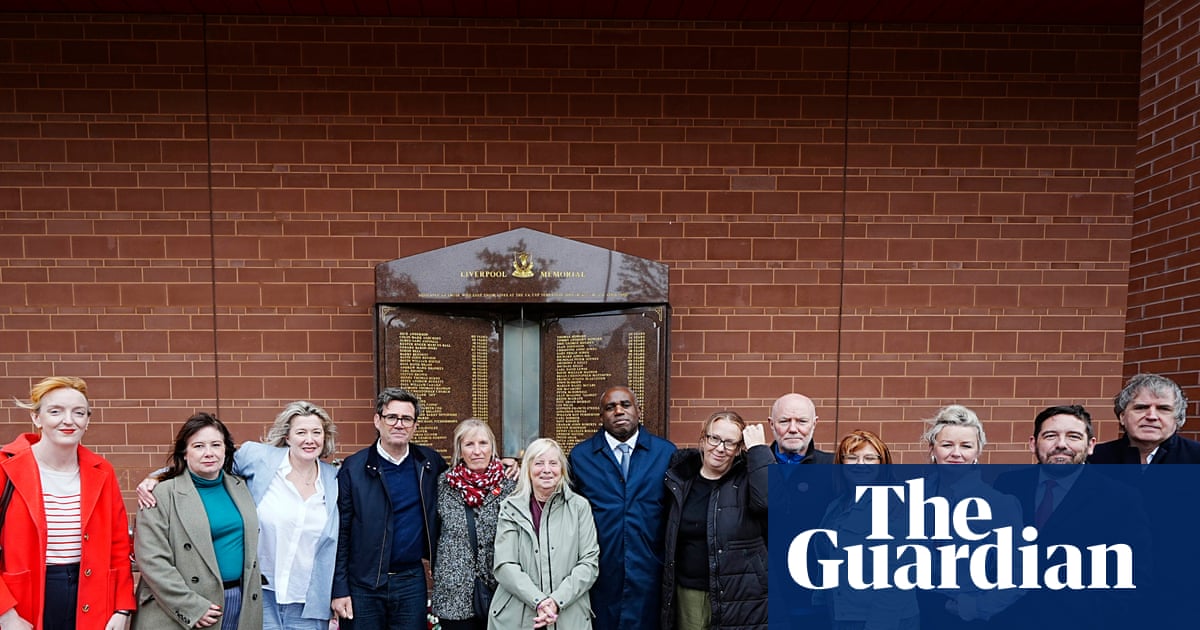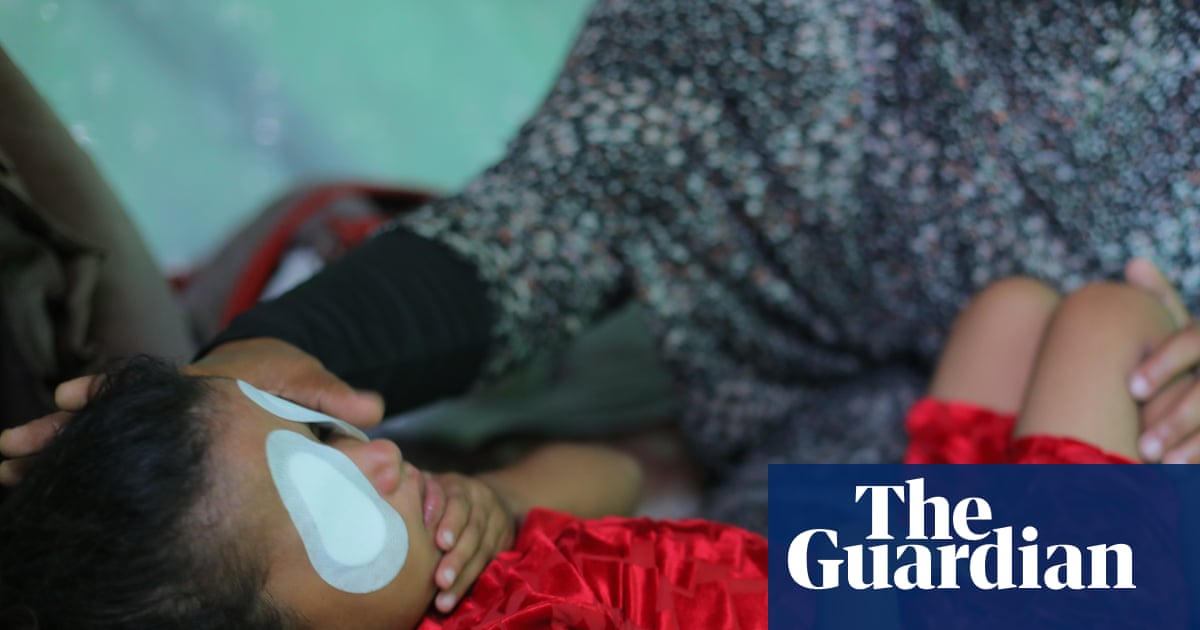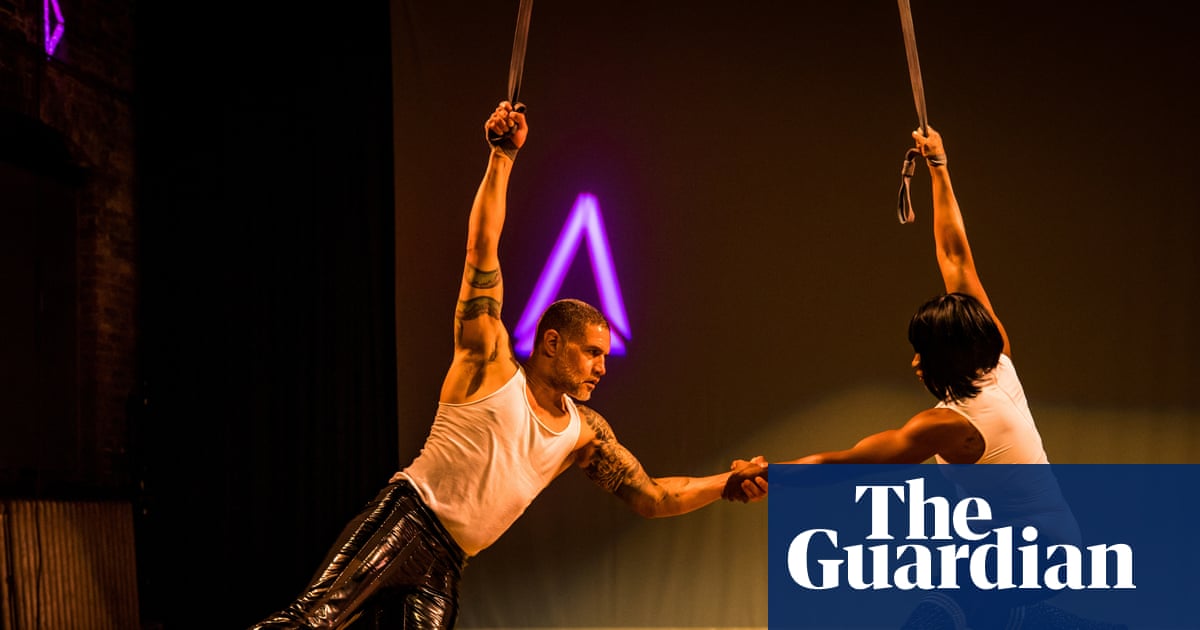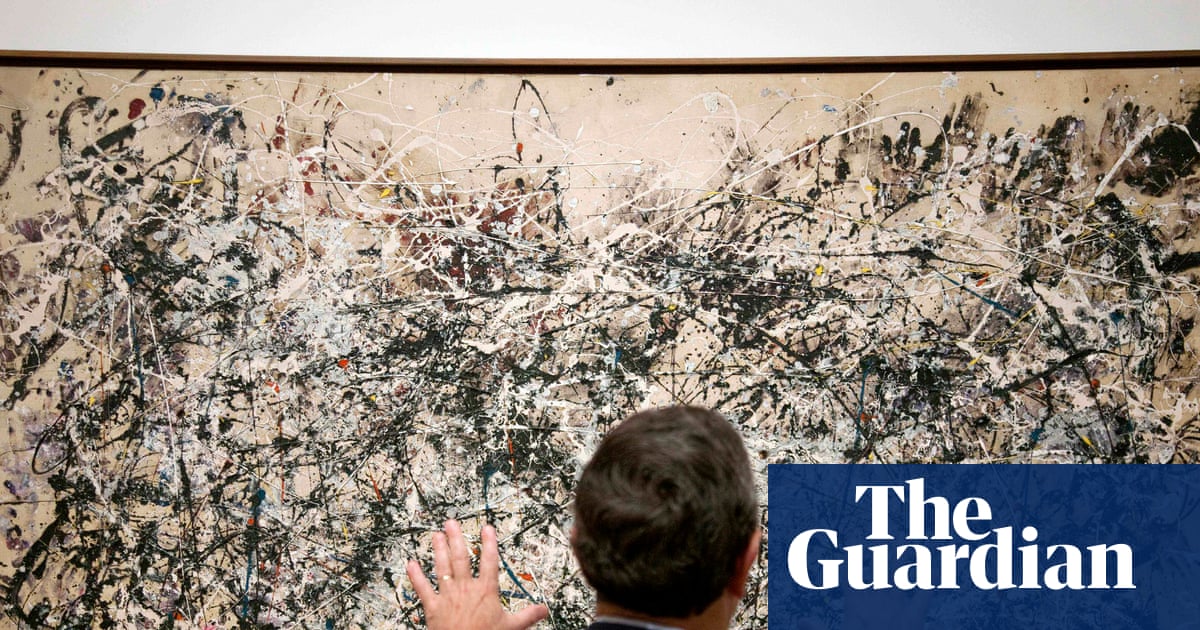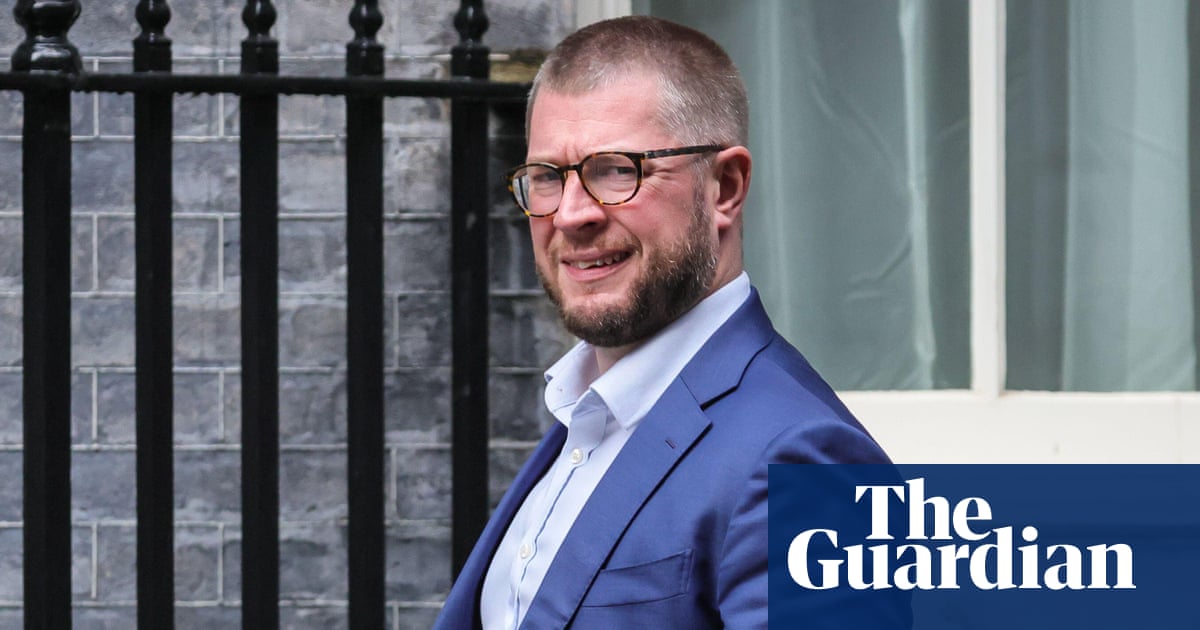The coming together of two of Latin America’s most successful and inventive pop acts might seem like a market-savvy partnership dreamed up by their record labels, but for Li Saumet, frontwoman of Colombia’s Bomba Estéreo, it’s a cosmic calling.
“One day I received a message from the universe: it’s time to make a song with Rawayana,” she says, sitting next to Beto Montenegro, frontman with that Venezuelan band and now Saumet’s partner in the supergroup Astropical. In a Bogotá hotel ahead of a performance at Estéreo Picnic festival, the duo regularly finish each other’s sentences, and Saumet rests her head on Montenegro’s shoulder with the ease of a sibling. On Astropical’s self-titled debut album, Saumet’s vibrant calls to dance and appreciate natural beauty bounce harmoniously off Montenegro’s softer vocals.
But there is a pointed reason for their playful, joyful music. The duo feel people are increasingly disconnected from each other in a world of constant grim headlines – not least in Montenegro’s Venezuela. Accepting a Grammy last year for best Latin rock or alternative album, Montenegro celebrated the resilience of Venezuelans mired in humanitarian crisis. But president Nicolás Maduro has attacked their song Veneka, claiming it denigrates Venezuelan women.
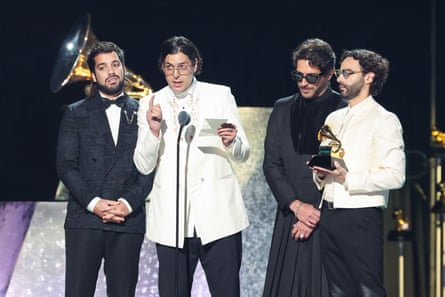
“Why the fuck is the president talking about me because I won a Grammy?” he says, still visibly perplexed from behind his rectangular green sunglasses. He now lives in Puerto Rico: “I don’t feel safe going back [to Venezuela]”. He remembers how during the recording of Astropical’s album Saumet turned to him and said, “‘The world needs this’. And that was the mindset: to make people feel good and remind them the world is not only this crazy place we’re seeing.”
Bomba Estéreo came to attention in 2008 with a trippy electro-cumbia sound and have since evolved into pop giants, earning Latin Grammy nominations, collaborations with artists including Bad Bunny, and billions of streams. Rawayana’s reggae-infused music surfed along Venezuela’s musical underground for almost two decades, but they emphatically crossed over with their Grammy-winning album ¿Quién Trae las Cornetas?
The pair met last year when Saumet tracked down Montenegro’s number and sent the Rawayana frontman a demo. “We made a song before we’d ever properly met, and then three songs came out in the studio in a couple of days,” Montenegro says. “It was fun, so natural.”
They kept recording, building an album where each track is inspired by a zodiac sign, a reflection of Saumet’s interest in all things cosmic. Today, the singer’s matching red-and-white mushroom earrings and handbag seem to evoke mind-altering substances, and her mystical vibe was obvious the moment Montenegro arrived at the studio to find tarot cards, incense and flowers scattered around. “Beto is used to recording with four guys in this macho environment,” Saumet says, mocking him by thrusting her arms like a T-rex and making macho grunts. “I think he was a little bit shocked.”
Colombia and Venezuela share food, musical rhythms and languages, with Saumet’s Caribbean accent sometimes mistaken for a Venezuelan accent. The pair have been fiercely debating what comes from which side of the border and consensus is yet to be reached on the provenance of the arepa, the region’s much beloved corn bread. “We are brothers,” Montenegro says of the two countries, laughing. “Brothers that fight, but still brothers.” Charged up by this good-natured friction, the resulting music is an energetic mix that jumps from champeta to Afrobeat and dancehall, occasionally pierced by the iconic sound of the gaita flute.
This feelgood music aims to counter growing digital alienation. Saumet cites recently seeing a young girl in an airport at 6am, scrolling rapidly through TikTok videos at full volume as everyone around her was equally lost in their own screen. “Sometimes it feels like we’re all zombies and we’ve lost all connection to one another,” she says. “We used to be at one with nature and together as humans. We woke up together, ate meals together, went to the river or the sea together. Now you go out for dinner and someone interrupts you with their phone. Everyone is thinking about likes. Who cares? The world gives us so many things that don’t help your brain.”
Venezuela has spiralled into economic and political collapse since 2010, and triggering one of the largest mass migrations in recent history. Rawayana’s satirical lyrics have poked fun at Venezuela’s political circus, and their song Veneka took a xenophobic slur frequently used to describe the 8 million Venezuelans who’ve fled poverty and violence in the last decade and turned it into a term of pride and identity. That nuance was seemingly lost on Nicolás Maduro, and after the president’s public condemnation of the song – possibly also precipitated by Montenegro and other Venezuelan musicians accusing him of electoral fraud – the band cancelled a tour for fear they would be persecuted by a government that regularly throws its critics behind bars.
Bomba Estéreo also have a political bent to their music: they have urged protection of the Amazon rainforest, and Saumet has directly criticised Álvaro Uribe, Colombia’s ex-president who has been charged with bribery and witness tampering (which he denies). But Astropical’s album avoids direct political messaging. In fact, Saumet and Montenegro seem exhausted by it.
“Those in power in Venezuela have been there for 25 years. I don’t think they should be there – but my music hasn’t changed that and I’m tired of associating my name with theirs,” Montenegro says. “They are not interesting people and I only want to engage with interesting things.”
“I think we can make change another way, touching souls, healing the damage caused by this political theatre,” Saumet says.
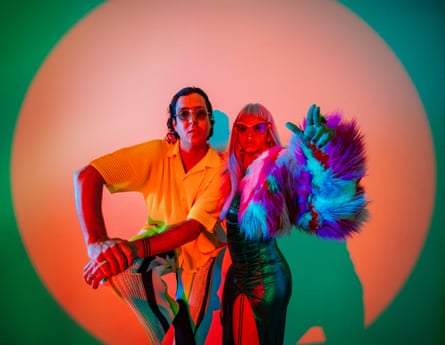
Despite Venezuela’s economic collapse artists continue to break through, with some such as Danny Ocean, Elena Rose and Yorghaki performing at Bogotá’s Estéreo Picnic. But Montenegro worries the next generation could be dragged into dangerous political debates that could land them or their families in jail. “It’s been very difficult for us to get where we are,” he says. “And these artists won’t change Venezuelan politics. Talking about it will just get them in trouble.” Addressing the media, he says: “Just let them be.”
“Rawayana made this fantastic song [Veneka] and all the press wants to ask about is the president,” Saumet adds. “I know how it is: you feel used, it feels bad as an artist.”
Jaded by protest music, Astropical are taking a different tack. “Right now it’s about giving love and receiving love,” Saumet says. “The world is actually a beautiful place. It depends on how you decide to see it. So we decided to see the world this way – and share it. The message is: you are not alone. We can be together in the world, to dance, kiss, laugh together!”

 3 months ago
171
3 months ago
171
